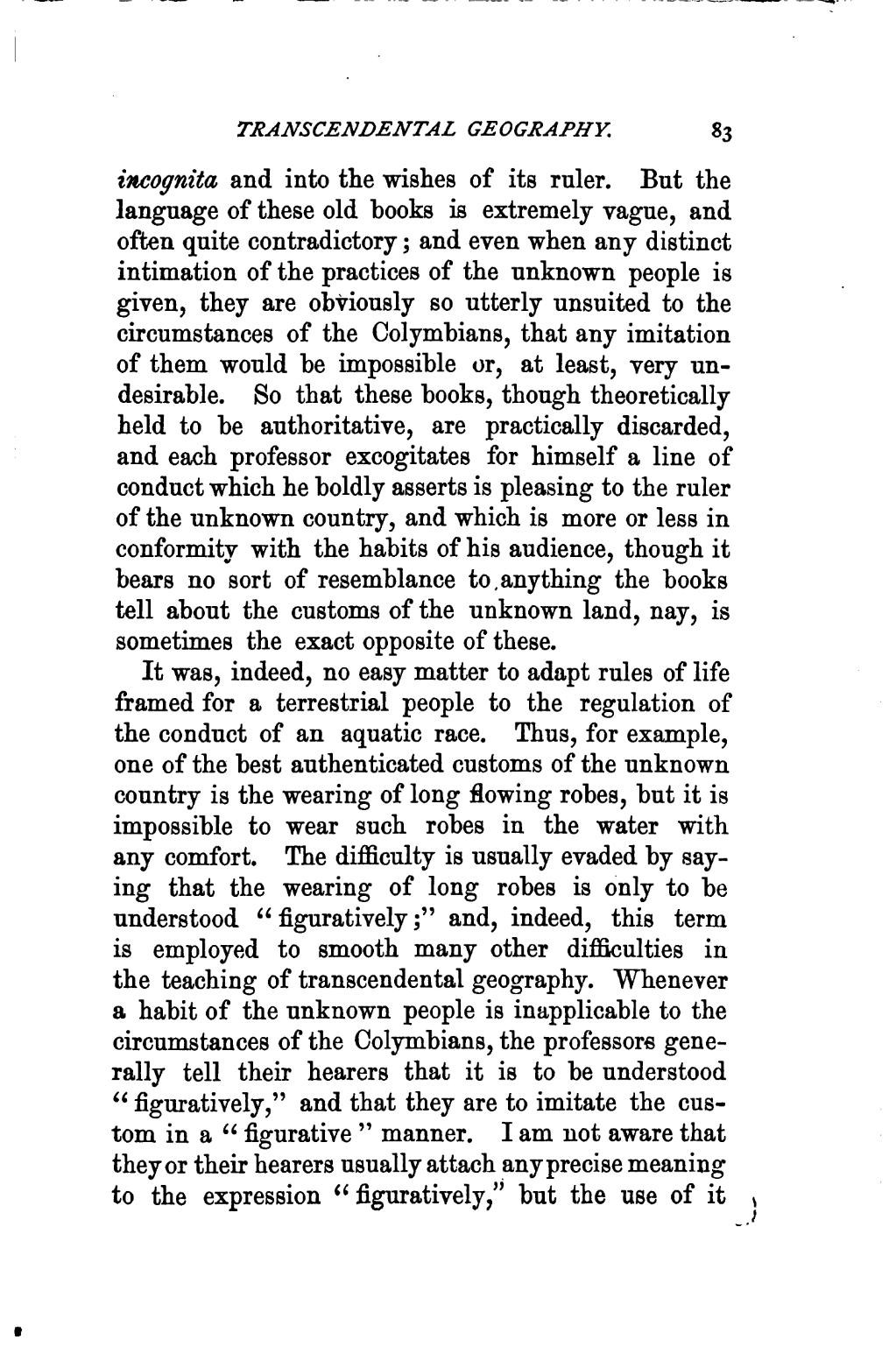incognita and into the wishes of its ruler. But the language of these old books is extremely vague, and often quite contradictory; and even when any distinct intimation of the practices of the unknown people is given, they are obviously so utterly unsuited to the circumstances of the Colymbians, that any imitation of them would be impossible or, at least, very undesirable. So that these books, though theoretically held to be authoritative, are practically discarded, and each professor excogitates for himself a line of conduct which he boldly asserts is pleasing to the ruler of the unknown country, and which is more or less in conformity with the habits of his audience, though it bears no sort of resemblance to, any thing the books tell about the customs of the unknown land, nay, is sometimes the exact opposite of these.
It was, indeed, no easy matter to adapt rules of life framed for a terrestrial people to the regulation of the conduct of an aquatic race. Thus, for example, one of the best authenticated customs of the unknown country is the wearing of long flowing robes, but it is impossible to wear such robes in the water with any comfort. The difficulty is usually evaded by saying that the wearing of long robes is only to be understood "figuratively;" and, indeed, this term is employed to smooth many other difficulties in the teaching of transcendental geography. Whenever a habit of the unknown people is inapplicable to the circumstances of the Colymbians, the professors generally tell their hearers that it is to be understood "figuratively," and that they are to imitate the custom in a "figurative" manner. I am not aware that they or their hearers usually attach any precise meaning to the expression "figuratively," but the use of it
